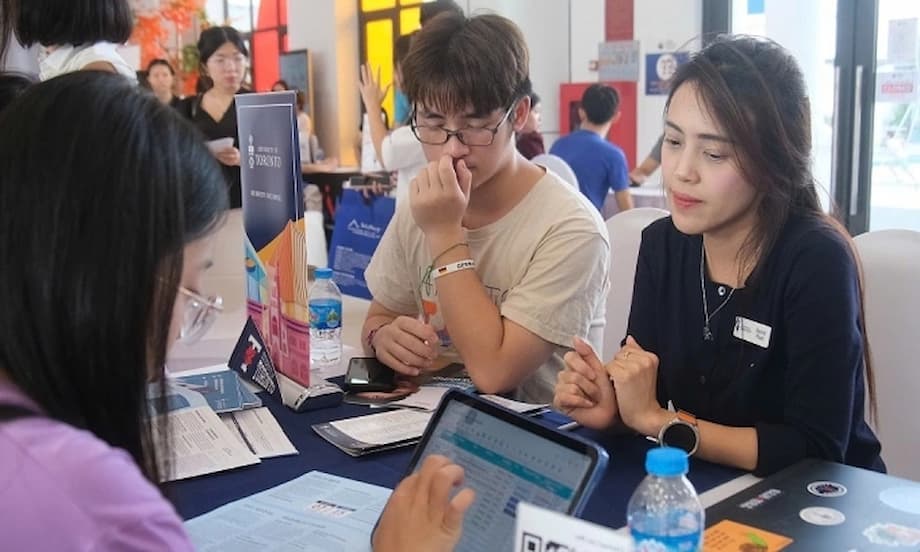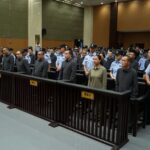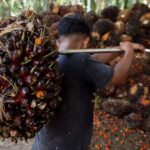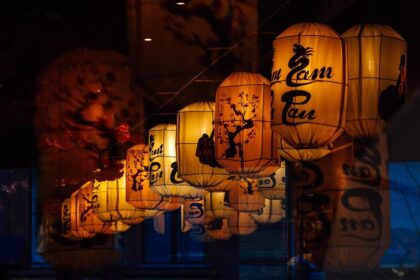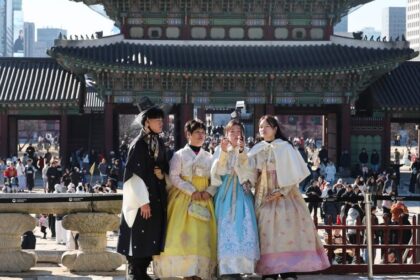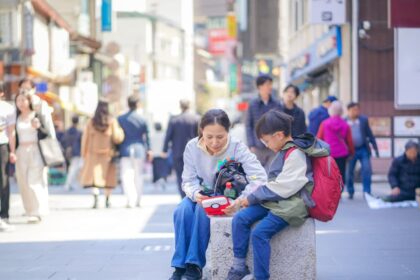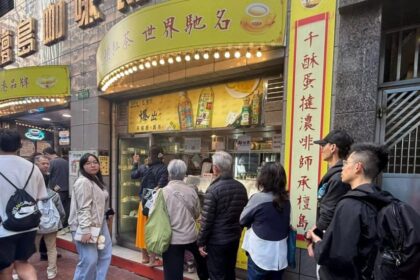Vietnamese students keep winning one of Canada’s toughest scholarships
Against formidable odds, Vietnamese students continue to secure one of the most competitive undergraduate awards in Canada, the University of Toronto’s Lester B. Pearson International Scholarship. Each year there are only 37 awards and roughly 2,000 candidates worldwide, yet one or two recipients often come from Vietnam. The program recognizes exceptional academic performance and leadership potential, and it pays the full cost of study for four years. An admissions officer from the university recently described it as the institution’s most competitive award, a benchmark that reflects how ambitious and selective the process has become.
- Vietnamese students keep winning one of Canada’s toughest scholarships
- What is the Lester B. Pearson scholarship
- Inside the Vietnamese success stories
- Academic preparation and admissions at U of T
- Costs, scholarships, and avoiding scams
- Life in Toronto and support for international students
- Practical advice for prospective applicants
- Key Points
The University of Toronto, ranked first in Canada and among the top global universities by major rankings, attracts high achieving students from every region. Nearly three in ten students on campus come from outside Canada. Canada itself has become one of the most sought after study destinations. Federal data show the country hosts more than one million international students. Indian nationals make up the largest share, Chinese students follow, and Vietnam sends tens of thousands, a sign of strong interest and improving preparation inside Vietnamese schools.
The financial stakes are equally striking. Without a major scholarship, an international undergraduate at Toronto typically pays about 50,000 Canadian dollars in tuition each year, and should budget around 23,000 for living costs. The Pearson scholarship removes that barrier by covering tuition, books, incidental fees and living expenses. Estimates place the yearly value of the award in the range of 65,000 to 83,000 Canadian dollars, depending on program and residence choices. For families weighing options across Canada, the United States, and other destinations, the scale of support explains why the competition is so intense.
What is the Lester B. Pearson scholarship
The Pearson scholarship was created to bring outstanding international students to the University of Toronto and to support them for the full duration of an undergraduate degree. Recipients are chosen for academic excellence, leadership, and a track record of positive impact in their schools and communities. The award covers four years of study and is considered the university’s flagship scholarship for non‑Canadian students. The program sits alongside a broad set of merit awards available to international applicants. Details about entry awards and in‑course funding are outlined on the university’s official site for international student scholarships, which also includes eligibility guidance and links to program specific awards. The page is available at future.utoronto.ca.
How nomination and selection work
High schools play a central role. A candidate must be nominated by their current school, and each school can nominate only one student. Nominees then apply to the University of Toronto and complete additional scholarship materials on a defined timeline. The program makes 37 awards each year, which translates to an acceptance rate under 2 percent given the global volume of nominations. Successful applicants combine rigorous academics with meaningful leadership and a clear sense of purpose, often demonstrated through sustained projects that serve a community.
- Strong grades across a demanding curriculum, coupled with required subjects for the intended major
- Substantive leadership that improved a club, created a program, or solved a real problem for others
- Authentic essays that reflect growth, values, and the reasons behind activities, not just a list of roles
- Positive references from educators who can speak to character, initiative, and potential
- Evidence of distinctive personal qualities, such as creativity, resilience, or a record of starting things that last
Program prerequisites matter a great deal in regular admission decisions. Engineering applicants must show senior level Mathematics, Physics, and Chemistry. Environmental science related majors require Mathematics, Chemistry, and Biology. Even a near perfect transcript can be deemed incomplete if a required subject is missing. University representatives encourage students to identify an intended field early and plan upper secondary course choices to match degree requirements.
Inside the Vietnamese success stories
Recent recipients from Vietnam illustrate how academic skill, clear goals, and community impact can align. From central Quang Binh Province, Nguyen Le Phuong Thuy earned a Pearson award and chose to study International Business and Management with a co op option. Her application highlighted sustained leadership, including organizing a project that delivered holiday gifts to families in remote mountain areas. She described how planning, fundraising, and execution changed her view of responsibility and helped her identify the kind of work she wanted to pursue in business and community development.
Another Vietnamese scholar, Huynh Ngoc Anh Thu, often known as Tina, moved to Canada at 13 and later became a Pearson recipient. She speaks several languages, built an online venture during the COVID pandemic, and wrote a practical guide for students adjusting to Canadian schools. Her record combined entrepreneurship with service, from raising funds for a children’s health foundation to helping learners with English. It was grounded in consistent academics and a willingness to take on new challenges outside the classroom. These stories show the scholarship committee’s interest in real initiative that benefits others, not just one time volunteer hours.
The 2024 cohort of Pearson Scholars, profiled on the university’s official site, reflects similar traits across many countries. Future architects, scientists, coders, and social advocates arrive with a shared focus on academic rigor and contributions to their communities. Profiles of current scholars can be found at future.utoronto.ca, which gives a sense of how varied successful paths can be.
Academic preparation and admissions at U of T
The University of Toronto evaluates applicants first on academic performance. That means grades, program prerequisites, and the overall strength of the curriculum. A competitive candidate from Vietnam can come from the national track or from international programs. Many students pursue the International Baccalaureate Diploma or the Cambridge curriculum, both of which align well with specific degree requirements. Careful planning in grade 10 and grade 11 helps ensure that the senior subjects match the program a student will choose in Canada.
- Engineering and computer science commonly expect advanced Mathematics, Physics, and Chemistry
- Life sciences usually expect advanced Biology and Chemistry, plus Mathematics
- Business and commerce programs may expect advanced Mathematics and proficiency in English
- Humanities and social sciences still value strong English and Mathematics, then course depth in intended areas
Applicants should verify the prerequisite list for each program and campus before registering for senior courses. Missing even one required subject can make an otherwise excellent file inadmissible. This is one reason students are encouraged to explore degrees early, meet school counselors in Vietnam, and map out a course plan that leaves options open while still meeting the firm requirements for a first choice program.
Vietnam’s pipeline to international universities has strengthened. The number of international schools has grown, English proficiency has improved, and partnerships with foreign universities now allow some students to earn portions of a degree at home. Schools offering the IB Diploma, such as those in Ho Chi Minh City and Hanoi, often report strong placement into selective institutions, including the University of Toronto. Market research points to careful decision making by Vietnamese families, a strong interest in scholarships, and rising attention to return on investment. These trends help explain why Vietnamese applicants remain competitive in Canadian selection cycles.
Costs, scholarships, and avoiding scams
For most international students, the key challenge is funding a degree. Typical annual tuition for international undergraduates at Toronto sits near 50,000 Canadian dollars, and a realistic budget for living costs is around 23,000. The Pearson scholarship pays for tuition and living costs in full. For those who do not receive Pearson, the university automatically considers international applicants for a range of entry awards. Examples include the President’s Scholars of Excellence Program, the U of T Scholars Program, and faculty specific awards. In the Faculty of Arts and Science, a Global Scholarship for selected international students can match the full cost of international tuition and associated fees for four years, excluding residence. Details and eligibility guidance are listed at future.utoronto.ca.
Once enrolled, students can compete for thousands of in course awards each year. The university’s Award Explorer tool helps current students identify scholarships tied to their program, campus, or year of study. These resources make the full cost of study more manageable for those who build a financial plan that combines savings, scholarships, and part time work permitted under Canadian rules.
University officials also warn about scholarship scams and misleading promises from unauthorized agents. The official scholarship page carries a clear notice to protect applicants and families from fraud. The university states the following guidance to applicants and their families:
The University of Toronto has been alerted to fraudulent emails offering scholarship assistance. Please exercise caution when researching scholarship opportunities. The university does not work with recruitment agents or agencies. Scholarships are only offered to students who have submitted applications directly to the university.
Life in Toronto and support for international students
Toronto is one of the most diverse cities in the world, which helps new arrivals find a sense of home. Vietnamese students often talk about the comfort of familiar food, the ability to switch between languages in daily life, and the number of cultural festivals that happen across the city. Neighborhoods like Chinatown and other enclaves make it easy to connect with community while also meeting friends from many countries. This social fabric becomes a practical support system during the first months of adjustment.
Student life also comes with a few everyday lessons. Lectures can move quickly, so consistent note taking matters. Winters require planning for proper gear such as thermal layers, waterproof boots, gloves, and a quality coat. Asking for help is encouraged. Professors and teaching assistants hold office hours, and international student offices run workshops on everything from academic writing to taxes. Vietnamese students who have settled in Toronto often advise newcomers to build a network early, stay connected to family, and pace themselves through the first exam cycle.
- Join student clubs, cultural societies, or volunteer groups to meet friends and practice English
- Explore neighborhoods with Vietnamese restaurants and grocers for familiar food and community
- Budget for winter clothing and learn how to layer for cold days
- Take notes in class and review weekly summaries with study groups
- Use university advising and counseling services when homesickness or stress builds
Practical advice for prospective applicants
The Pearson scholarship rewards genuine leadership and sustained academic strength. There is no single formula, yet successful applicants often share habits that any motivated student can adopt. These steps help whether the goal is Pearson or one of the many competitive entry awards that support international students at Toronto.
- Plan course selection early to meet specific prerequisites for your intended program
- Speak with your high school about the nomination process and deadlines well before final year
- Choose activities with real purpose, then commit, lead, and measure the impact on others
- Use essays to reflect on why you did the work, what went wrong, what changed, and what you learned
- Ask referees who know you well to write detailed letters that show character and initiative
- Prepare for interviews by practicing clear, concise answers and examples from your experience
- Create a financial plan that combines scholarships, family support, and permitted part time work
- Verify every requirement on the official university site and beware of unsolicited offers or paid agents
Key Points
- One to two Vietnamese students win the University of Toronto’s Pearson scholarship each year despite an acceptance rate under 2 percent
- The award makes 37 offers annually and covers full tuition, books, fees, and living costs for four years
- Typical international tuition at Toronto is about 50,000 Canadian dollars per year and living costs are about 23,000
- Selection requires a school nomination, strong academics, leadership, reflective essays, and references
- Program prerequisites are firm, and missing a required subject can lead to rejection
- Beyond Pearson, the university automatically considers international applicants for several entry awards
- Thousands of in course scholarships are available to current students through Award Explorer
- The university warns against fraudulent emails and does not use recruitment agents for scholarships
- Toronto’s multicultural community and student support services help international students adjust
- Early planning, authentic leadership, and careful verification on the official site improve applications


